3 to 6 years old
Primary Program
About Our Primary Program
“The child looks for his independence first, not because he does not desire to be dependent on the adult. But because he has in himself some fire, some urge, to do certain things and not other things.”
— Maria Montessori
The Four Avenues of the Primary Program
Utilizing these four principals we establish a rich learning environment for your child.
1. Practical Life:
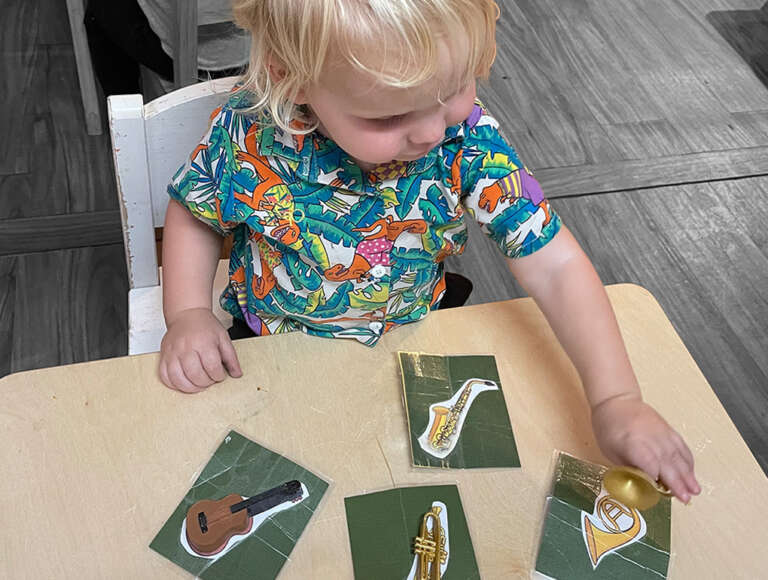
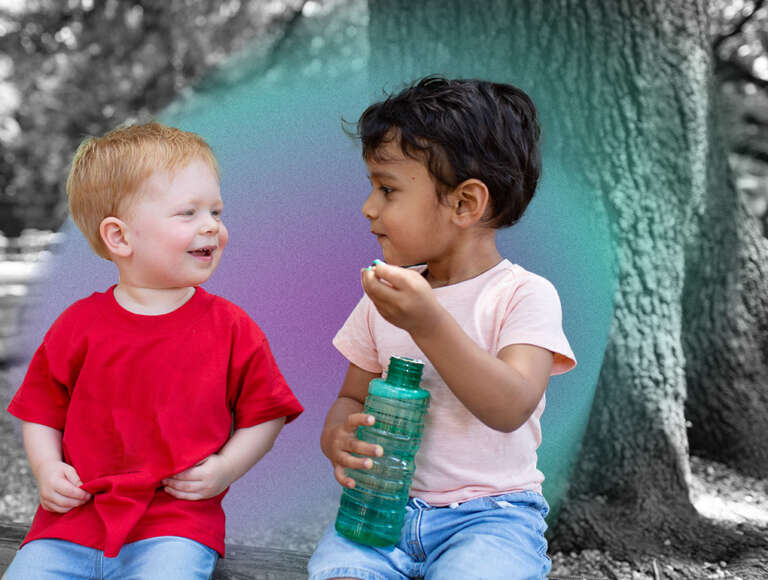
2. Sensorial Development:
3. The Language Avenue:
Language is made of sounds. To teach a child how to read and write we first help them master the sub-skills of sounds and how to break and make sounds into words. Dr. Montessori’s method of isolating difficulty becomes pivotal when it comes to learning how to read and write. We teach the child the individual sounds of the letter and how the letter is formed. Then we help build words that they know from their spoken language with movable alphabets. Writing develops spontaneously. A child can become a confident independent reader and overcome any reading disorders if they are led through a sequenced path of the pyramid of reading. Fluent and automatic word identification starts with having a clear understanding of the phonetic awareness, followed by strong letter recognition. Comprehension follows as we open their world to language and the love of books and literature. Your child will have the opportunity to enjoy early literacy and writing.
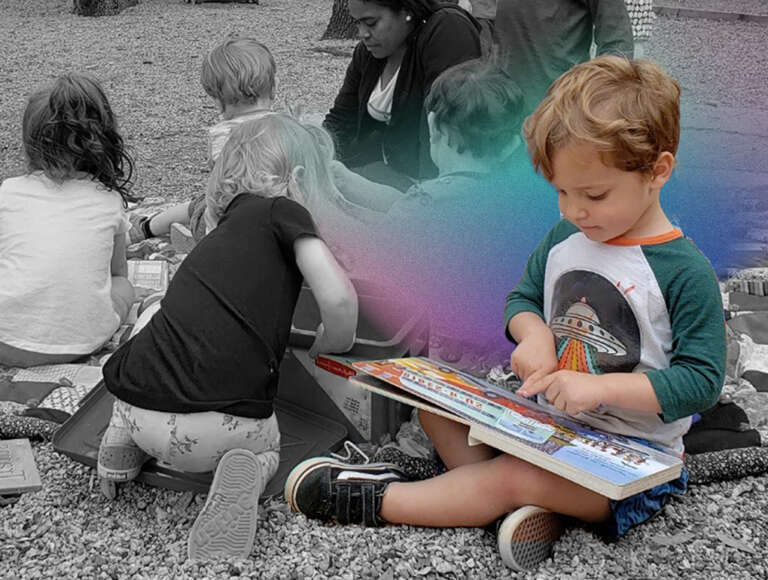
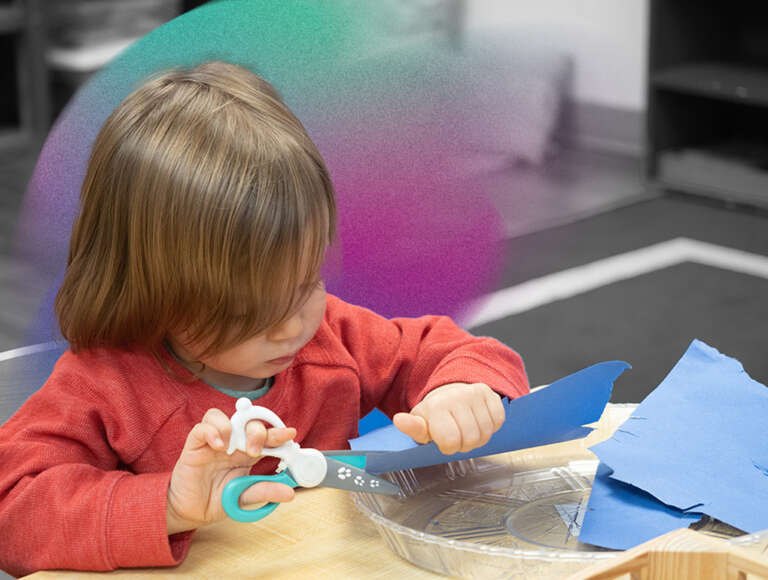
4. Preparation of the Mathematical Mind:
Preparation of the Mathematical Mind: The human mind is mathematical by nature. It seeks and recognizes definite patterns, whether it is the change of four seasons or the rhythms in the day and night. This is evident as young as infants who look for peaceful sameness. Humans are born with this tendency, so we all have mathematical minds. What is the decimal system if nothing but a pattern? We use tactile materials designed by Dr. Montessori to show children how to count and provide a clear understanding of addition, multiplication, subtraction, and division. Your child will have an opportunity to develop an intrinsic understanding of mathematics that will allow them to feel confident about building elementary math knowledge.
The Three-Hour Work Cycle
The Montessori work cycle that lasts for three hours engages children and aids them to reach their unique potential. The uninterrupted cycle of learning is a fundamental part of the Montessori curriculum initiated by Maria Montessori.
The three-hour work cycle is essential in allowing children to fully come to understand the various concepts presented through the materials they are focusing on. This cycle helps children to develop concentration and provides them with a sense of satisfaction when they complete the work.
When children experience this newfound feeling of concentration and satisfaction, it fuels their enthusiasm for even more hands-on learning.
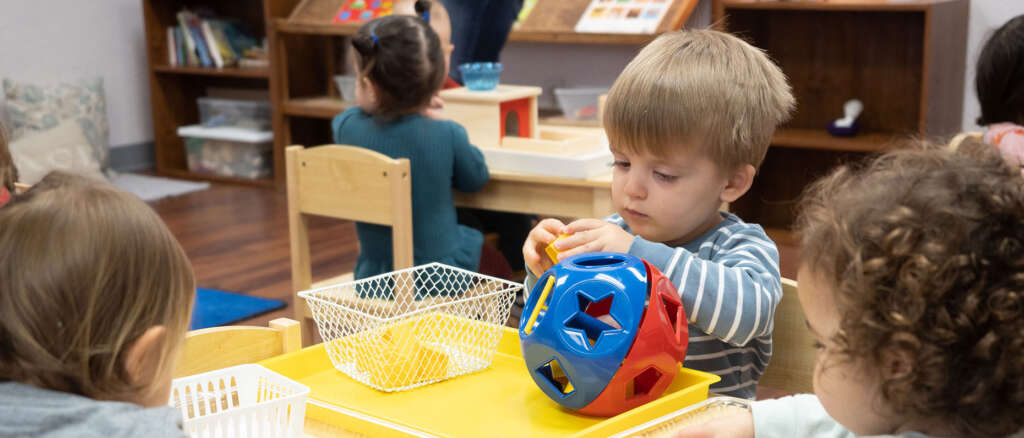
What is mindfulness?
All of our students practice Mindfulness and Meditation weekly in their classrooms with their teachers. A mindful child is in touch with their inner and outer experiences and is aware of how emotions and feelings manifest in the body. When their attention wanders elsewhere, they are not able to control their bodies and their emotions. We will do breathing exercises, read stories, discuss emotions, and move together. These activities help teach our students to center and reground when they are experiencing big emotions that they are not sure what to do with. Teaching body awareness helps them react appropriately with their bodies and their voices. Mindfulness gives children the tools for control in difficult situations.
Our Schools
Spanish immersion campus
Jollyville
11124 Jollyville Rd
Austin, TX 78759
Contact Us Today
The first step in enrolling in our program is to visit our campus and meet the teachers and staff.
"*" indicates required fields